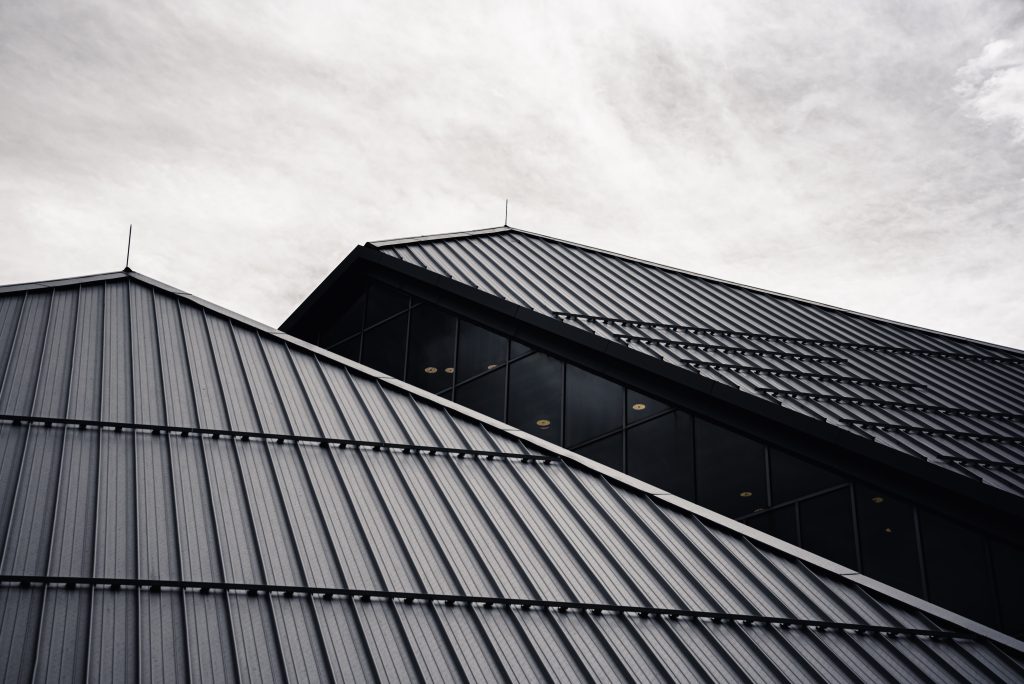When it comes to construction and industry, one metal that has a reputation for being solidly dependable is Aluzinc. But aren’t all metals solidly dependable? What sets Aluzinc apart from the others? As metal experts, we’re here to give you the you the full lowdown on this exceptionally reliable metal.
Introducing Aluzinc
First up, don’t be confused by the name: you could be forgiven for thinking Aluzinc is a simple hybrid of aluminium and zinc, but there’s way more to this mighty metal. The go-to material for many roofers, architects and landscapers, this special-blend sheet metal is incredibly durable and strong because of its innovative formula.
So, what is Aluzinc made of?
Here’s the (not so secret) recipe. Aluzinc is carbon steel completely coated with a specially-formulated alloy of aluminium and zinc. The composition of the coating is 55% aluminium, 43.4% zinc and 1.6% silicon. This outer coating protects the inner steel from the elements and corrosion, making it up to six times more resistant to corrosion than traditional outdoor favourite galvanised steel. The coating is added to the steel through a hot-dipping process. On the surface, Aluzinc is similar in appearance to bright, ‘spangled’ galvanised steel, but it is much stronger and longer-lasting.
Is Aluzinc the same as Aluzink?
Yes – Aluzinc and Aluzink are the same metal. It also goes by the names of Zincalume and Galvalume.
What are the advantages of working with Aluzinc?
The advantages of working with Aluzinc are extensive. The main positive of this metal is its strength and reliability, but it has plenty more going for it. Just some of the reasons why people choose to work with Aluzinc are:
- Shiny silver appearance, for both aesthetic reasons and because it reflects heat and light
- Smooth, anti-fingerprint coating which protects the metal further during in transportation and storage
- Incredible corrosion resistance
- High surface hardness, making it resistant to abrasion
- Despite it superior hardness, Aluzinc is formable
- It can be laser-cut
- Longevity – Aluzinc performs for up to 20 years
- Paint-friendly surface
- Totally weldable
- Highly heat resistant – up to 315 degrees celsius!
- Sustainable – Aluzinc is completely recyclable
What are the disadvantages of working with Aluzinc?
With so many star qualities, you might be wondering if there are any negatives to Aluzinc. The main disadvantage to Aluzinc, especially when compared to other metals such as galvanised steel, is cost. As you’d expect for such a high-performing product, Aluzinc is relatively expensive. It’s worth bearing in mind, however, that the long-term performance makes Aluzinc more cost effective in the long run, and therefore excellent value for money. When it comes to construction and industry, Aluzinc’s longevity is essential. But if you’re looking for a strong, corrosion-resistant metal for something shorter-term, such as raised beds or garden edging, you might consider an alternative such as galvanised steel. Good old galvanised steel is resistant to the elements for up to ten years or longer in an outdoor setting.
What is Aluzinc used for?
As you can imagine, the uses for Aluzinc are very many. A material that is so strong and lasts for such a long time is bound to be useful in a huge number of applications. Just some of them are:
- Roofing
- Fencing
- Cladding
- Insulation
- Boiler casings
- Industrial doors
- Domestic appliances such as washing machines and microwaves
- Garden sheds
- Warehouses
- HEVAC units
- In chemical and power plants
- The petrochemical industry
- Marine environments
- Air ducts
- Flues
To summarise
If you’re looking for a long-lasting, hard-working metal that can be relied upon in even the harshest of conditions, Aluzinc could be the one for you. Seriously: wind, rain, hail, saltwater: whatever the elements chuck at it, Aluzinc can handle it. That’s why it’s relied upon for buildings and roofs in even the most extreme environments.
We hope this profile of Aluzinc has helped you decide whether it’s the right metal for your project, but we know you might have more questions. For friendly, expert advice on all kinds of sheet metal, give us a call on 0191 264 6464 and we’ll be happy to help.


